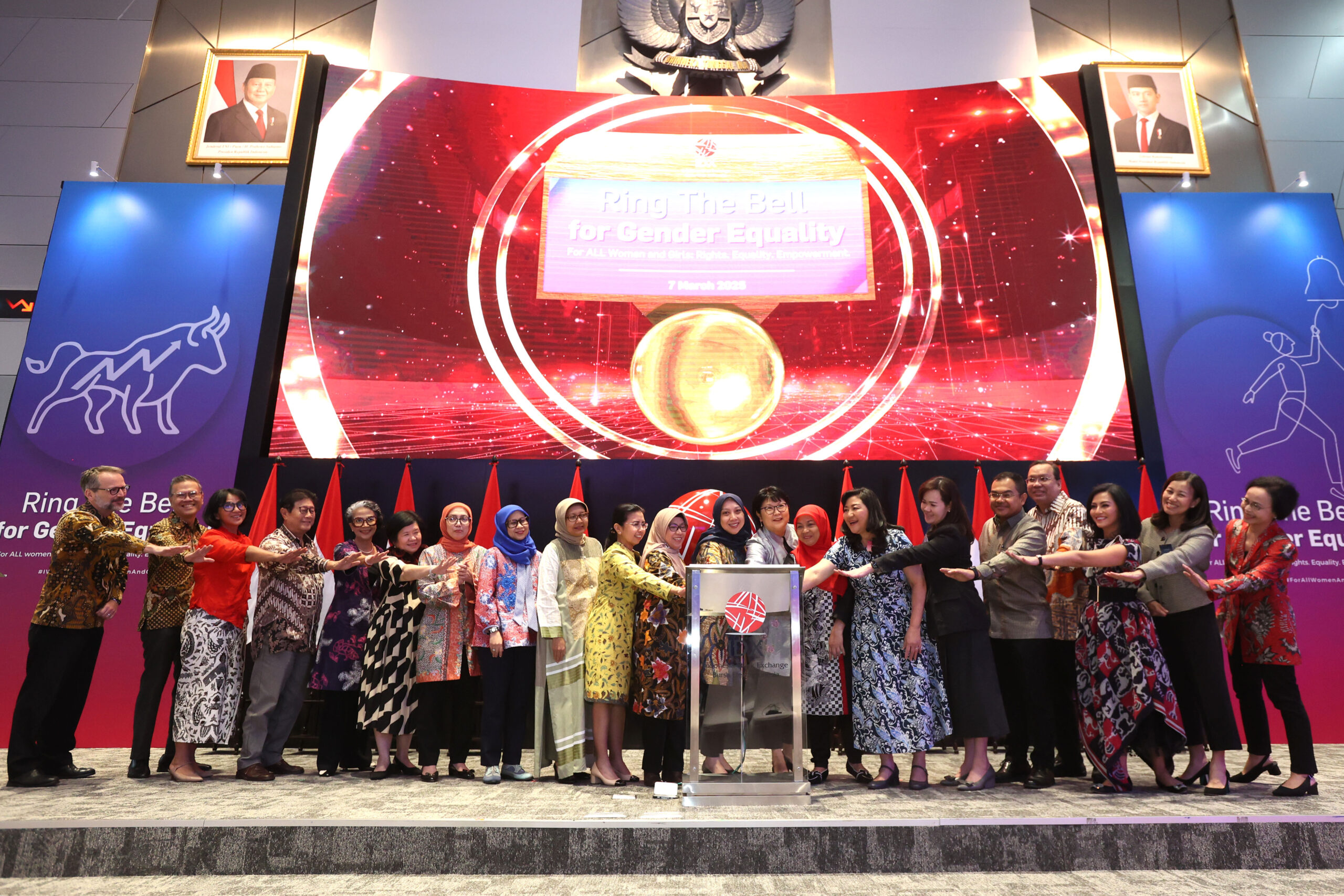The Quarterly Multi-stakeholders Dialogue on Business & Human Rights – series 6 took place on Wednesday, 13 December 2017 at Hotel Morrissey, Jakarta, with main agenda was to share different perspectives from business, government, CSOs, and academia regarding Business & Human Rights and Responsible Investment.
Oxfam GB in Indonesia (Oxfam), International NGOs Forum on Indonesian Development (INFID), and Indonesia Global Compact Network (IGCN) are in collaboration to implement a three years European Union (EU) funded program titled “Walking the Talk: Promoting Accountable Business through Advancement of United Nations Guiding Principles on Business and Human Rights (UNGPs) Implementation in Indonesia.”
OXFAM, IGCN, and INFID worked collaboratively with Perkumpulan Prakarsa and ResponsiBank to conduct this dialogue. Perkumpulan Prakarsa have initiated ResponsiBank Indonesia coalition supported by WALHI (Friends of the Earth Indonesia), YLKI (Indonesian Consumers Foundation), ICW (Indonesian Corruption Watch), INFID (International NGOs Forum on Indonesian Develpoment), PWYP (Publish What You Pay) Indonesia, TuK (Transformation for Justice), Lokataru, and INDIES (The Institute for National and Democratic Studies) to promote sustainable and responsible policies and practices within Indonesian financial sectors.
Economic growth, human rights, and development are inextricably linked. Denial of human rights continues to trigger civil unrest in many parts of the world, which in turn undermines the sustainability of long-term development and growth. The misalignment between the scope and impact of economic forces and actors and the willingness and capacity of States to ensure the protection of human rights in the context of economic activities must be addressed. Foreign direct investment (FDI), in particular, presents a unique challenge for alignment, including with regards to corporate compliance, accountability and the responsibility to respect human rights.
Edi Setijawan, Director Financial Sustainability of Financial Service Authority (Otoritas Jasa Keuangan,OJK), addressed that awareness of the application of human rights in business sector has to come from the society before the government design any relatable regulations. However, since such awareness is not yet persisted in Indonesian society, OJK aims to not only introduce, but also enforce the concept of sustainability and human rights in the business and private sector. To accelerate the implementation of sustainable business principle, OJK has issued POJK Nomor 51/POJK.03/2017 (POJK 51) which regulates about the implementation of sustainable finance for financial institution.
To ensure a smooth yet quick progression upon the implementation, OJK targeted this policy to be adopted by large banks, which are signified by their position in either BUKU (Bank Umum Kelompok Usaha) III or BUKU IV. In 2018, these financial institutions have to prepare their sustainability initiatives and submit their 2019 sustainability action plan to OJK on Q4 2018. Along with the action plan, POJK 51 also obliged all listed companies to issue their individual sustainability report at the maximum on March 31, 2019. Usually, countries that have applied such regulations, are countries that have experienced financial crisis earlier this century. However, for most of them, given Indonesia’s economic strength and position, they saw that the implementation of the policy is a very bold step taken by Indonesia.
Mr. Ah Maftuchan, Executive Director of Prakarsa responded that everyone, ranging from corporations to CSOs, should support and safeguard the early adaptation and implementation of this policy as to ensure appropriate implementation and impactful business initiatives. He also stated that OJK has taken the right step in implementing the sustainability effort. Given the rigorousness of banking industry and regulation, imposing the sustainability regulations on banking will indirectly help regulating non-financial industry as well as maintaining macro-prudence in bank and lending management, where one of the method to ensure sustainability initiatives being implemented by companies, the initiative would be admitted in the covenant policy. Finally, it was under Prakarsa’s interest to be committed in protecting and respecting human rights, specifically within business context and generally within every part of the society.
On of the most important step to achieve appropriate synchronization between business, government, CSOs, and academia is to create a multi-stakeholders dialogue where each sector can share their view, ideas, and concerns. Stated by Y.W. Junardy, President of IGCN, he further emphasized the misconception that business and human rights are not going well together. In fact, in the modern business environment where consumer demand dominates, and technology is ever-present, disrespecting human rights will drive the customer away. Business that respect human rights is not only giving a human face on business themselves, but also creating a more profitable business in the long run.
Another government representatives that also attended the dialogue is Mr Sulaiman Syarif, Deputy Director of Human Rights & Humanitarian Affairs, Ministry of Foreign Affairs Republic of Indonesia. During his visit, both national and international, he noticed that Indonesia’s economy is primarily consisted of micro, small and medium enterprise (MSMEs). He also sees that one of the major challenge is that these small businesses are not yet well educated in business & human rights, and at the same time, efforts in educating the small business upon business & human rights issue is similar to accusing the of violating human rights. At the end, as one of the leading human rights country in South-East Asia, it is under everyone’s best interest that we create a business environment that respects human rights.
This dialogue has succeeded in growing further awareness in human rights and its connection with responsible investment. Along with that further understanding, this dialogue also updated us with the development of policies and regulations that will help supporting and enforcing the sustainability effort done by business sectors. With an increased rate of adoption and implementation, it is hoped that business can further support our collective effort in creating the world we all want.
Further information, contact: Alysa – bhr@indonesiagcn.org





